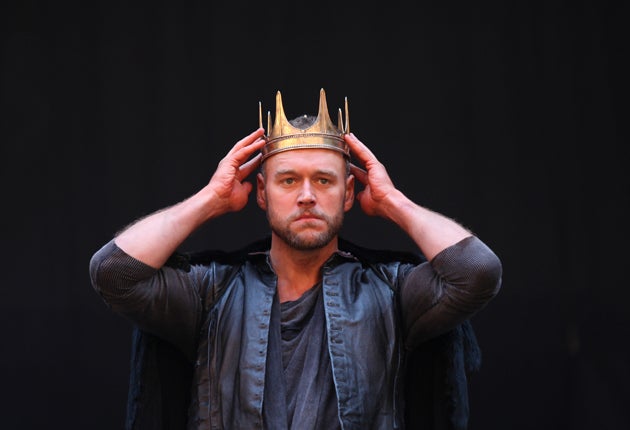Macbeth, Shakespeare's Globe, London

Your support helps us to tell the story
From reproductive rights to climate change to Big Tech, The Independent is on the ground when the story is developing. Whether it's investigating the financials of Elon Musk's pro-Trump PAC or producing our latest documentary, 'The A Word', which shines a light on the American women fighting for reproductive rights, we know how important it is to parse out the facts from the messaging.
At such a critical moment in US history, we need reporters on the ground. Your donation allows us to keep sending journalists to speak to both sides of the story.
The Independent is trusted by Americans across the entire political spectrum. And unlike many other quality news outlets, we choose not to lock Americans out of our reporting and analysis with paywalls. We believe quality journalism should be available to everyone, paid for by those who can afford it.
Your support makes all the difference.The play hasn't started and you're already saying, with Marlowe's Mephistopheles, "Why this is hell, nor am I out of it." The smoke is billowing, the bells are tolling, the bagpipes are wailing and, down below in the pit, the heads of the groundlings are peeking through a black tarpaulin like the lost souls on Judgment Day.
Director Lucy Bailey says that she stood in the middle of the Globe and immediately thought of Dante's description of hell as a vortex of nine descending levels. She's followed this through, with a barbaric, bloody and superstitious Macbeth driven by the three witches.
In stark contrast to the swift, stark and chamber-scale productions of this play stretching from the legendary Trevor Nunn version with Ian McKellen and Judi Dench right through to Declan Donnellan's recent uncluttered Cheek by Jowl reading, the Globe shows a world of political and domestic well-being torn apart by evil forces. And it lasts three hours.
The Macbeths are a good-looking celebrity couple in the pairing of muscular, well-constructed Elliot Cowan and pert, short-haired, slinky Laura Rogers; they writhe in sexual ecstasy on his return from the fray, and it's the sexual taunting that drives Cowan's destructive urges, as well as his wife's obsession with status.
Cowan's on the edge, behaving oddly from the minute he murders Duncan – James Clyde's benevolent monarch is seen singing songs with his followers – and once his mind is "full of scorpions" he's lost. Cowan's voice is slightly fuzzy, but he tempers it with a falsetto, scary element as he hurtles towards the showdown in Dunsinane and Rogers, plaintive and abandoned, drifts into her own nightmare.
It's an exciting reassertion of a Macbeth that's been largely forgotten. And it exploits to the full the physical dimension of the space, with bloody corpses writhing around in the black tarpaulin with the punters, messengers and musicians invading the upper circles.
To 27 June (020 7401 9919)
Join our commenting forum
Join thought-provoking conversations, follow other Independent readers and see their replies
Comments